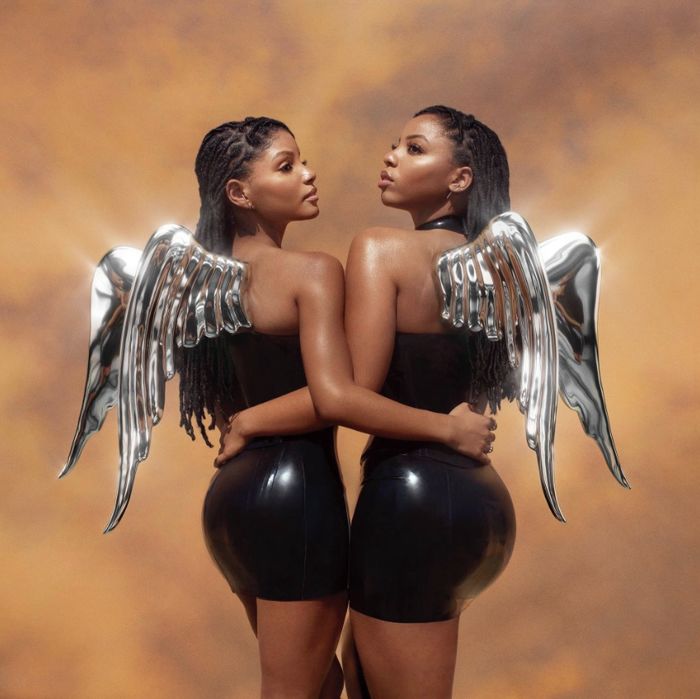Queering the music scene in the Middle East
Will Kirby explores the sounds and significance of Lebanese band Mashrou’ Leila
Few Middle Eastern musicians subvert expectations quite like the Lebanese band Mashrou’ Leila. Formed over a decade ago by a group of students at the American University of Beirut, the band has since released five studio albums and has amassed an impressive following around the world. Last year, they once again toured Europe and the United States – a breakthrough few international artists manage, let alone those who sing in Arabic.
From their more subdued, earlier hits to their more recent electro-pop numbers, whether in Arabic or English, the indie band has consistently retained their Middle Eastern identity. Nevertheless, Mashrou’ Leila has, at the same time, managed to set itself apart from other, more traditional-sounding artists.
However, the significance of this band extends to much more than their regional and international acclaim. Even if you don’t manage to find the serious messages lurking behind the poetic imagery of their lyrics, they are clear to see in their provocative music videos. The anti-occupation video which accompanies the song ‘Cavalry’ and the music video for ‘Radio Romance’, which opens with the words “for those who haven’t given up, love is resistance”, are just two examples.
One of these messages – of particular importance during Pride Month – is that of sexual freedom. The lead singer, Hamed Sinno, is gay and one of very few artists from the region who are openly so. Although it may be initially surprising for Westerners to hear of an openly gay Middle Eastern artist, Sinno has insisted that support for sexual freedom among liberal Arabs should not come as a shock. In fact, the group and their popularity point to significant, tangible shifts in public opinion.
"there is still a way to go before equality is reached"
Their home country, Lebanon, is increasingly regarded as particularly liberal compared to its Arab neighbours. Beirut is home to a lively queer scene, featuring gay nightlife and a number of LGBT+-friendly spaces. However, it is important to remember that, as promising as these changes in attitudes are, there is still a way to go before equality is reached. The law in Lebanon continues to allow for up to a year’s imprisonment for sexual relations which go against the ‘laws of nature’, even if this law is as good as unenforced. Against the backdrop of this still largely conservative region, Mashrou’ Leila is no stranger to controversy.
The group has fallen foul of the authorities in several Middle Eastern countries, most significantly so in Egypt in 2017. Mashrou’ Leila has also found itself barred from performing in the Middle East on a number of occasions, including twice in Jordan and again just last year in their native, supposedly more liberal Lebanon. Such incidents underline the importance of artists, like Mashrou’ Leila, championing freedoms in a region where governments consistently deny LGBT+ people their rights and freedom of expression, despite the advances being made.
In our society, an argument which often floats around – even in queer circles – is that there is no need to celebrate Pride, given that ‘equality for gays has been achieved’. Besides such a stance invalidating the experience of many British LGBT+ people, let alone the history of our fight, it also fails to consider the realities of the countless queer people living in less accepting societies.
"Music also has its role in this fight"
While we’re enjoying the privileges we’ve been afforded, it’s all too easy to forget that so many are still fighting for even the most basic of rights. Yes, we should look back and feel incredibly proud of where we’ve come from, but we should never lose sight of the distance still left to cover.
Music also has its role in this fight. Music has offered – and continues to offer – a safe space for expressing queerness; countless musicians from Judy Garland to Beyoncé, and Freddie Mercury to Lady Gaga, whether gay themselves or allies, have been icons to the LGBT+ community. And Mashrou’ Leila occupies its own spot in this myriad of voices.
However, we should be careful not to reduce the changing attitudes towards sexual freedoms in the region down to this band alone. Middle Eastern musicians talking openly and unashamedly in favour of such issues contribute to crucial conversations; however, we should remember that they themselves are not the conversation. That said, it’s hard to shake the feeling that Mashrou’ Leila has grown to symbolise something bigger than just a band.
As much as they aren’t the extent of changing attitudes in the Middle East – nor the cause of them – their success in spite of much controversy is certainly significant. Their music speaks to all and, although it may not be well understood (perhaps because of language, maybe prejudice), their message is always there.
You can hear some of Mashrou’ Leila’s songs on the playlist below, and be sure to look up some of the lyrics to understand their message for yourself.
 Features / Should I stay or should I go? Cambridge students and alumni reflect on how their memories stay with them15 December 2025
Features / Should I stay or should I go? Cambridge students and alumni reflect on how their memories stay with them15 December 2025 News / Cambridge study finds students learn better with notes than AI13 December 2025
News / Cambridge study finds students learn better with notes than AI13 December 2025 News / Uni Scout and Guide Club affirms trans inclusion 12 December 2025
News / Uni Scout and Guide Club affirms trans inclusion 12 December 2025 Comment / The magic of an eight-week term15 December 2025
Comment / The magic of an eight-week term15 December 2025 News / News In Brief: Michaelmas marriages, monogamous mammals, and messaging manipulation15 December 2025
News / News In Brief: Michaelmas marriages, monogamous mammals, and messaging manipulation15 December 2025








